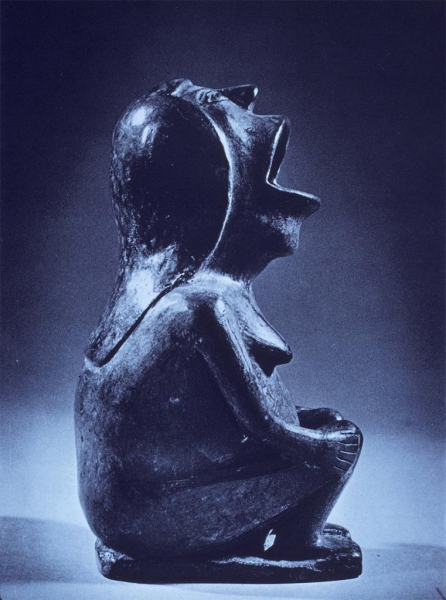 / Nasty Women
Subscribe
/ Nasty Women
Subscribe

On Sunday October 19th 2016, the third and final national televised debate took place between Donald Trump and Hillary Rodham Clinton, the two nominees for the office of President of the United States. Near the end of the debate, the moderator posed the following question of Secretary Clinton, which I paraphrase here: Social Security and Medicare are going to run out of money. Will you as President consider a deal that includes both tax increases and benefits cuts to try to save both programs? She responded by saying that she is committed to putting money into the Social Security Trust Fund, which she will do with revenue from increased taxes on the wealthy. She added, “My Social Security payroll contribution will go up, as will Donald’s, assuming he can’t figure out how to get out of it.”
Here, Clinton is alluding to the fact that, at that point in the election cycle, Trump had strongly insinuated that he has avoided paying Federal Income tax for many years. As Clinton continued her answer, Trump interjected: “Such a nasty woman.”
Nasty. The etymology of this word is unknown. It might be related to Middle Dutch—nestich—foul or dirty. The Swedish also has the word naskot—dirty. In Middle English we have naxty, though the origins of this term are unclear.
Another suggestion is that the word has its origin in the Middle French, nastre – stranger, of low social status. This is the short form of villenastre, which means “infamous” or “ignoble.” This longer word is composed of nastre – stranger, of low social status, and vilain – villain. The word villain has its origins in Latin, from the word villa, meaning town. That is, the original usage for the word villain is not the way we tend to use it today, but rather to denote a person born in a rural community—someone “rustic” and “low-born.” This was the common usage in the early 14th century. Usage then evolved through the centuries to mean a person who is unprincipled, depraved—a scoundrel. The way we use this word has changed through time. In the early 17th century, the meaning of “morally corrupt” starts to gain traction. These days, we are more likely to use it to describe a person who is offensive, annoying, contemptible, ill-tempered, or unkind. But it is worth noting here that the origin of this word seems to point to status— social status—as a determining feature of your character and behavior. To be low-born is to be nasty.
We, of course, do not know what meaning Mr. Trump intended when he interrupted Secretary Clinton to refer to her as “nasty.” But it is clear that she got under his skin with her explicit comment on his tendency to evade paying his fair share—she was being annoying, offensive, and perhaps most apt in this situation, unkind. It was unkind of Clinton to point this out. In pointing it out, she behaved like a low-born, unprincipled, scoundrel.
It is intriguing to think about the usage of this particular word in this particular context. Perhaps Trump was concerned to call attention to the fact that Clinton behaved in a way that is inconsistent with a particular feature of her character: her womanness. Being a woman, we are told, means being nice, being kind, being gentle, being temperate, being graceful, being quiet, being accommodating, etc. To be feminine is to not be nasty.
It might be tempting to think that use of the word “nasty” on that stage in that way does not mean very much. But this would be to underplay the power of words. It is no understatement, after all, to say that Trump’s incendiary and, at times offensive, rhetoric worked to great effect during his campaign.
But the power of a word can cut two ways.
The work of linguists has shown that women, young women in particular, are the leaders of language change. William Labov, an important voice in the field of sociolinguistics, observed over twenty-five years ago that women lead the vast majority of linguistic changes (1). Linguists continue to confirm Labov’s findings. Why do women have this power? Several suggestions have been made: women are more socially aware, have greater empathy, and have larger social networks that lead to exposure to more diversity of language. These factors may point to why women more easily disrupt language norms. And, because it is still the case that women spend more time with young children than men, as caregivers, teachers, day care providers, etc., women are well-positioned to influence language norms for the next generation.
This power of women over words became clear immediately after the October 19, 2016 debate. Secretary Clinton and Senator Elizabeth Warren (and many others) publicly embraced the term Mr. Trump meant as an insult, and called on fellow nasty women to make their nasty voices heard on matters of policy. Since then, “nasty woman” has turned up on protest signs, mugs, T-shirts, hats, and bags. This indicates that a reclaiming, or, more precisely, a redefining of the term is in progress, particularly among young women, in keeping with Labov’s observation. Presumably, the intended effect of Trump’s use of “nasty” to describe Clinton was to demean her. But it also had an unintended effect. It galvanized a movement and gave it a name. And, as this generation of women repurpose the word, it might be that by the next generation, we shall understand “nasty” to mean challenging, loud, irrepressible, strong, bold, and courageous.
Julie Walsh is assistant professor of philosophy at Wellesley College.
Photo Credit (fist image): William Labov, “The intersection of sex and social class in the course of linguistic change,” via Language Variation and Change 2: 205-254, 1990.
Photo Credit (second image): "Woman Screaming, 1000-1500, Ceramic, Pre-Columbian", via ARTstor Collection.







